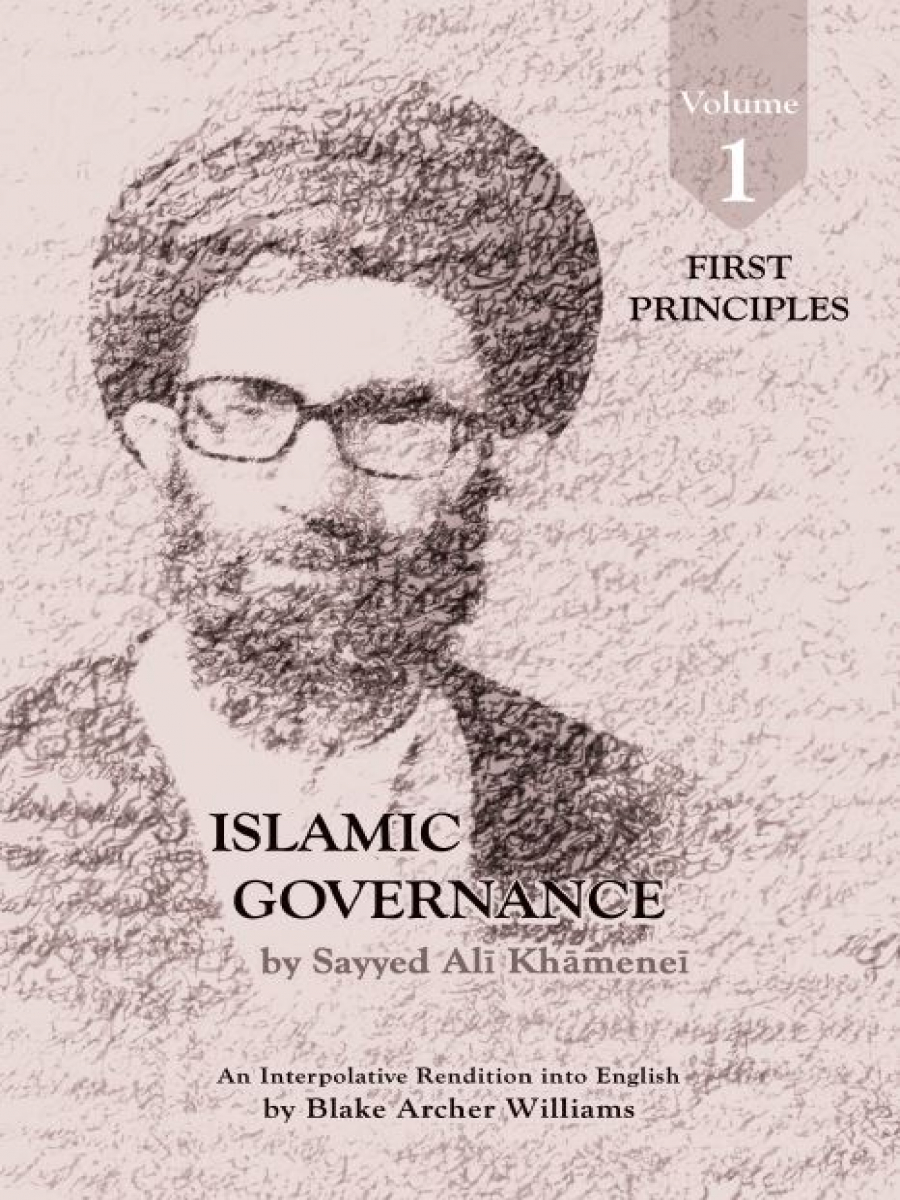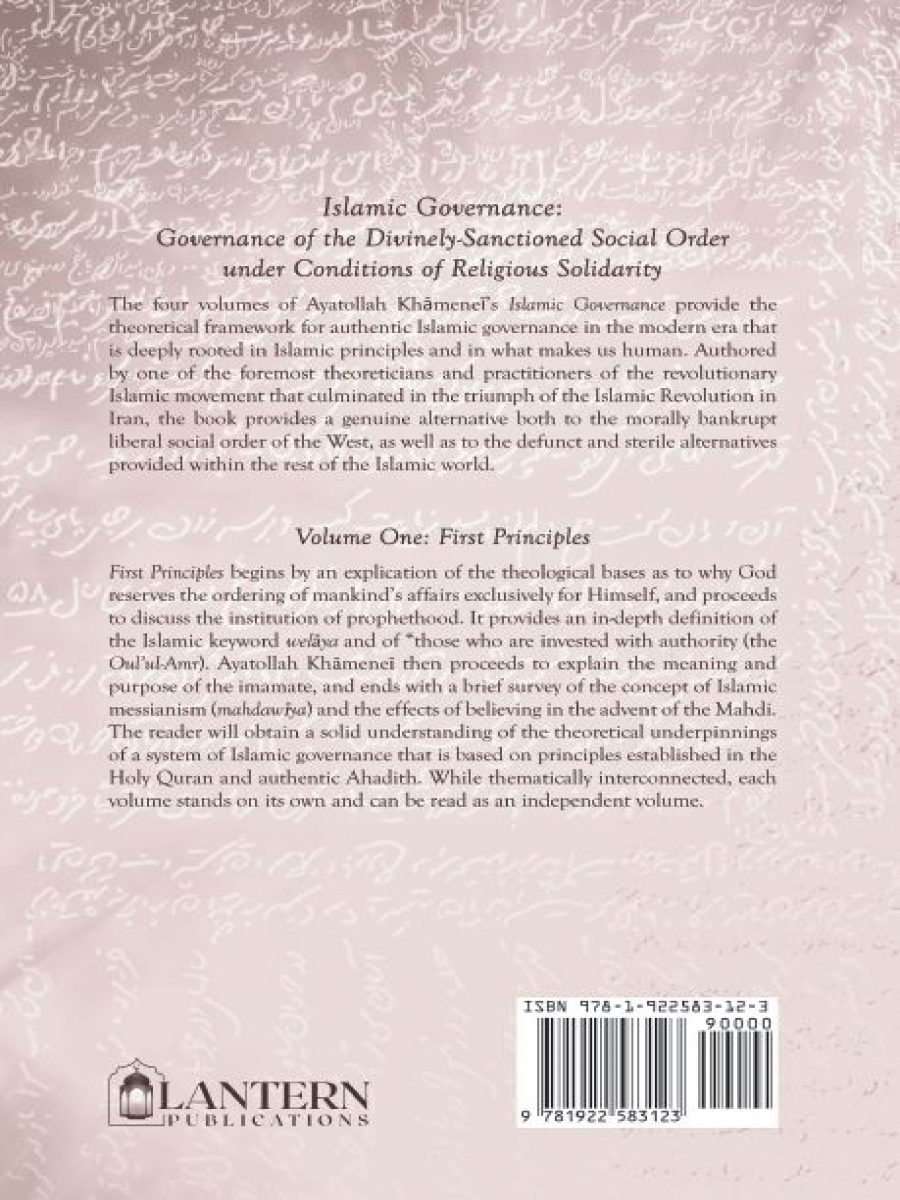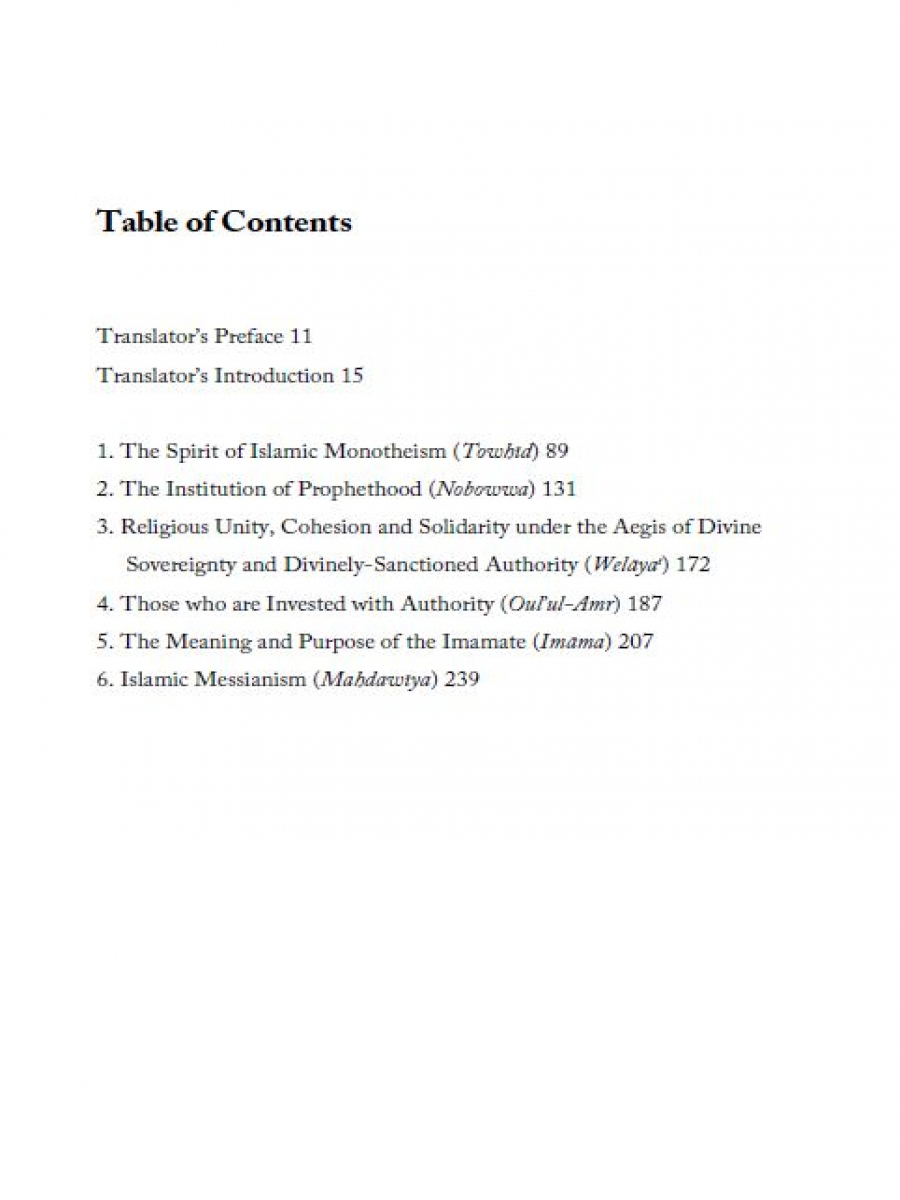
The four volumes of Ayatollah Khāmeneī’s Islamic Governance provide the theoretical framework for authentic Islamic governance in the modern era that is deeply rooted in Islamic principles and in what makes us human. Authored by one of the foremost theoreticians and practitioners of the revolutionary Islamic movement that culminated in the triumph of the Islamic Revolution in Iran, the book provides a genuine alternative both to the morally bankrupt liberal social order of the West, as well as to the defunct and sterile alternatives provided within the rest of the Islamic world.
Volume One: First Principles
First Principles begins by an explication of the theological bases as to why God reserves the ordering of mankind’s affairs exclusively for Himself, and proceeds to discuss the institution of prophethood. It provides an in-depth definition of the Islamic keyword welāya and of “those who are invested with authority (the Oul’ul-Amr). Ayatollah Khāmeneī then proceeds to explain the meaning and purpose of the imamate, and ends with a brief survey of the concept of Islamic messianism (mahdawīya) and the effects of believing in the advent of the Mahdi. The reader will obtain a solid understanding of the theoretical underpinnings of a system of Islamic governance that is based on principles established in the Holy Quran and authentic Ahadith. While thematically interconnected, each volume stands on its own and can be read as an independent volume.


